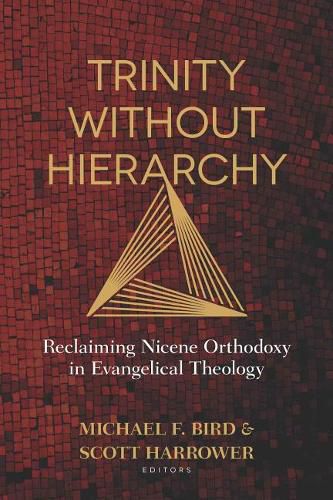Readings Newsletter
Become a Readings Member to make your shopping experience even easier.
Sign in or sign up for free!
You’re not far away from qualifying for FREE standard shipping within Australia
You’ve qualified for FREE standard shipping within Australia
The cart is loading…






A defense of equality among the persons of the Trinity In response to those complementarian theologians who assert that the Son is eternally subordinate to the Father, the contributors to Trinity Without Hierarchy contend that this view misconstrues the orthodox doctrine of the Trinity and reduces the Son to a lower level of glory and majesty than the Father. Surveying Scripture, church history, and theology, sixteen contributors present a defense of the full and equal authority of all three members of the Trinity while critiquing approaches that border on semi-Arianism. In particular, the creedal confessions of Nicaea are upheld as the historical standard by which any proposed Trinitarian doctrine should be judged.
While some contributors hold complementarian and others egalitarian viewpoints, all agree that Trinitarian relations are not a proper basis for understanding gender roles. Trinity Without Hierarchy is indispensable reading for anyone interested in the current debate over the relationship between Trinitarian theology and the roles of men and women.
$9.00 standard shipping within Australia
FREE standard shipping within Australia for orders over $100.00
Express & International shipping calculated at checkout
A defense of equality among the persons of the Trinity In response to those complementarian theologians who assert that the Son is eternally subordinate to the Father, the contributors to Trinity Without Hierarchy contend that this view misconstrues the orthodox doctrine of the Trinity and reduces the Son to a lower level of glory and majesty than the Father. Surveying Scripture, church history, and theology, sixteen contributors present a defense of the full and equal authority of all three members of the Trinity while critiquing approaches that border on semi-Arianism. In particular, the creedal confessions of Nicaea are upheld as the historical standard by which any proposed Trinitarian doctrine should be judged.
While some contributors hold complementarian and others egalitarian viewpoints, all agree that Trinitarian relations are not a proper basis for understanding gender roles. Trinity Without Hierarchy is indispensable reading for anyone interested in the current debate over the relationship between Trinitarian theology and the roles of men and women.